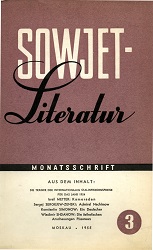
SOWJET-Literatur. Ausgabe 1955-03
for more detailed information regarding the content of this issue please download the Table of Content, which you find in the "Contents"-Tab as "Information"
More...We kindly inform you that, as long as the subject affiliation of our 300.000+ articles is in progress, you might get unsufficient or no results on your third level or second level search. In this case, please broaden your search criteria.

for more detailed information regarding the content of this issue please download the Table of Content, which you find in the "Contents"-Tab as "Information"
More...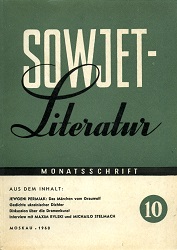
Evgeni PERMJAK: The fairy tale of the gray wolf // Oles GONTSCHAR: Usman and Marta // Leonid PERWOMAISKI: The demlack // Pavlo TYTSCHINA: Isn't it better to be true and young // Ljubomir DMITERKO: A love song / Am Ufer // Maxim RYLSKI: A girl // Viktor IWANISSENKO: The way of a poet // Arkadi ANASTASYEW: The conflict in the drama // Afanassi SALYNSKI: The person on the stage // Viktor ROSOW: Good signs // Gurgen BORIAN: Character and conflict // Yevgeny CABRILOWITSCH: About the movie of the spirit and the truth // Maxim RYLSKI: Poet of the good // Michailo STELMACH: Interview // Galina BARINOVA: Inspired artistry .... A rare photo // Grigori KOSINZEW: important things in everyday life // Ludmilla TURUNOWA : Visual artists of the Ukraine // Antonina KUDRJASCHOWA: In twenty-five languages
More...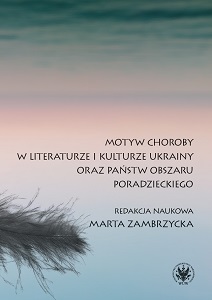
This article concerns three Ukrainian texts about the experience of disease, as well as the social activism undertaken by the authors of these texts. It shows how literature can become an activity that helps people suffering from various diseases and how, with the help of a literary text, one can change social awareness and effect changes in attitudes, beliefs and behaviour.
More...
The monograph analyses literary images of difficult childhood from the end of the 19th century to modern times. The authors look at different subject matters from various perspectives. The most important of them are: the problem of establishing identity in times of turmoil or individual crises, the influence of social and political events on the image of childhood and childhood in war literature (which concerns World War II and subsequent conflicts, including the current one in Ukraine).
More...
The article analyses the works of Volodymyr Kulish in the 1960s: memories of the "Slovo pro budynok" and the "Pacany. Povist pro bezprytulnych". These two texts are considered as a diptych about childhood. The genre features of the works, the specifics of the chronotope are revealed. The historical and cultural context has been reconstructed: an attempt has been made to compare the memoirs of V. Kulish and I. Senchenko, as well as to comprehend Patsana’s story in the context of literature about the homeless in the 1920s and 1930s (first of all, I. Mykytenko’s story "Vurkagana"). Particular attention is paid to the interpretation of motives of sports, art, adventure, homelessness, cinematic quotes are found in the story "Pacany".
More...
The paper conveys an analysis and interpretation of the 1960s–1970s literary prose of the Ukrainian writer Hryhir Tiutiunnyk. Autobiographism-based novels and short stories present the writer’s childhood during World War II. It is claimed that the war, and especially its early period, constitute a background for showing the true image of life in the Ukrainian land, which the Soviet authorities had turned into their internal colony – an analog of the third world. An orphaned child, as the weakest link in the Ukrainian society of the time, goes through traumatic experiences that would influence his entire life. The works of Tiutiunnyk as well as other writers tackling similar issues facilitate research in the post-colonial thinking trend and allow employing post-colonial theory tools not only for the post-totalitarian era, beginning after the 1989–1991 transformation period in Middle and Eastern Europe, but also directly for colonial practices and states before the critical event.
More...
The article is devoted to the analysis of prose for children and youth of the second half of the twentieth century on the topic of war. The main emphasis is on the anti-militaristic orientation of the prose thinking of H. Tyutyunnik, Y. Hutsalо, M. Vingranovsky, who tried in their own way to avoid the traditional idealism in regard to their war and post-war childhood. The writers do not change their style and worldview guidelines; their work is consistent with the general aesthetic principles and trends in the development of literature in the 60s. of the XX century. As an artistic fact of the cultural epoch, it shows a complex of spiritual and emotional foundations in its development: vitality, optimism, love and faith, kindness, humanity, and the value of human life.
More...
The article analyses the image of the Lost Childhood in novel "Internat" by Serhii Zhadan. Attention is drawn on the problem of artistic comprehension of the traumatic experience of the totalitarian past and the military present. The novel examines the impact of the category of trauma on the formation of national and cultural identity, as well as the transmission of traumatic experiences, resulting in generational misunderstandings and gaps.
More...
The article analyses the main stages of controlled world comprehension by the child in war period. The literary model of children’s consciousness is presented in the novel "The Boy in Striped Pyjamas" by J. Boyne as an integral and systematic process. The nature of children’s consciousness is mainly influenced by the principles of education and the environment which surround the child. The self-consciousness of children characters is marked as significantly high and it constantly develops from the awareness of their social status to a particular nation affiliation. Despite the different ways of the world cognition, peers who belong to different nations and have considerably opposite living conditions are united by friendship and genuine child sincerity.
More...
Iz zbirke „Putovati u Lavov“, prevod sa poljskog Petar Vujičić, Narodna knjiga 1988.
More...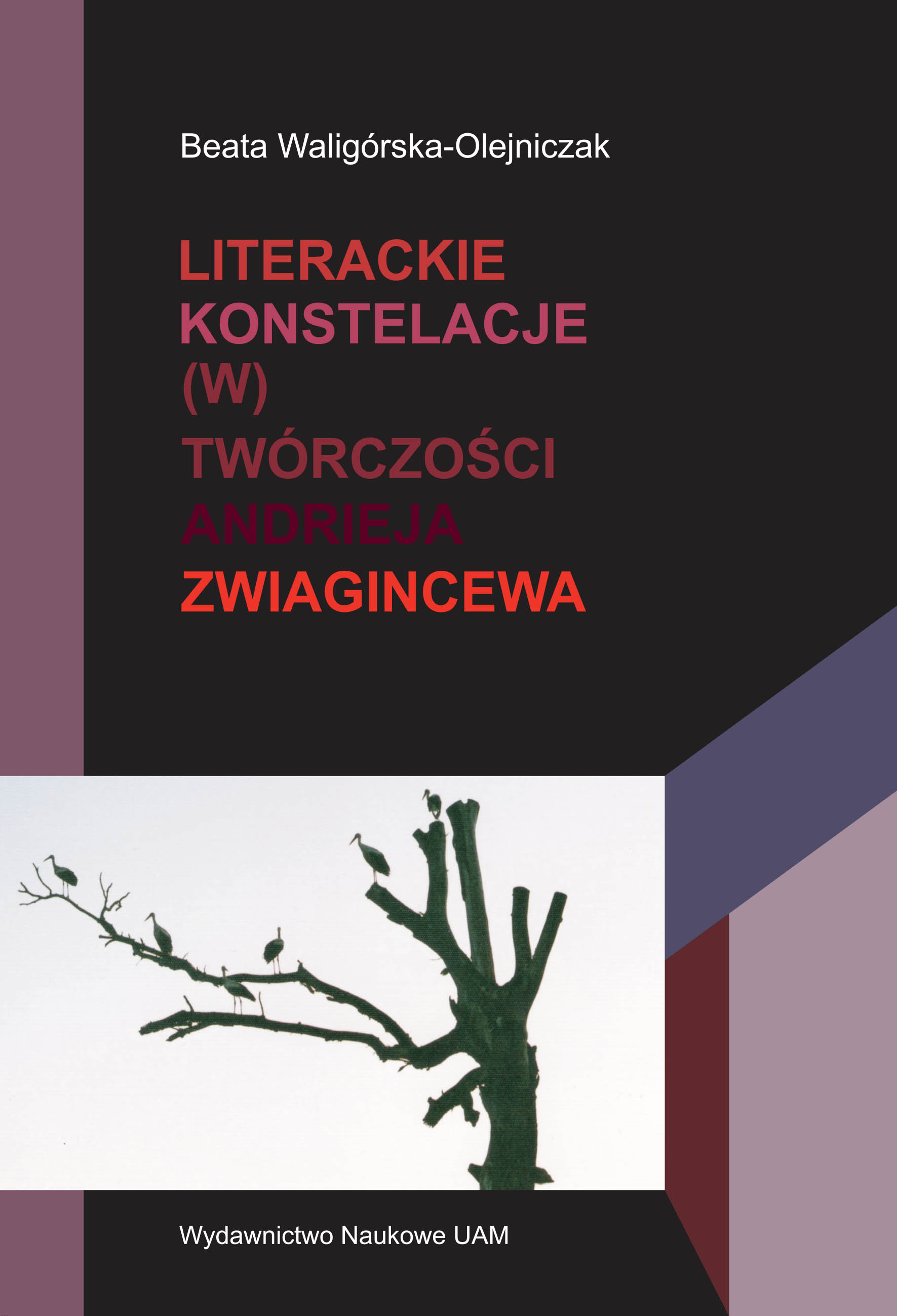
This book presents the interpretation of the films made by Andrey Zvyagintsev, one of the best-known contemporary directors, in the context of the selected texts of Russian literature. Although his films tend to be compared with the masterpieces of the world cinematography (i.e. the achievements of Michelangelo Antonioni, Ingmar Bergman, Robert Bresson, Michael Haneke, Alexander Sokurov, and most often Andrey Tarkovsky) it is easy to note – both in Poland and overseas as well – the lack of thorough monographs that would treat all his works as a complete and consistent art project. This book constitutes the first attempt of such research undertaking. The presented interpretation has comparative character, its methodological basis is the category of cultural memory as expounded in the theories of Astrid Erll and Renate Lachmann, enrooting this term in a broadly understood notion of intertextuality, close to the concept of the memory of the text. Each of the chapters contains the case study of one of the short or feature films (including TV series) and turns attention to metaphors, motives and migratory themes, taking their origin in the literary texts of Mikhail Bulhakov, Ivan Bunin, Fyodor Dostoyevsky, Mikhail Saltykov-Shchedrin and Lev Tolstoy. The monograph offers also a wide overview of articles published so far on Zvyagintsev in Russian, English and Polish. The author takes into account the comments given by the Russian director himself concerning his works.
More...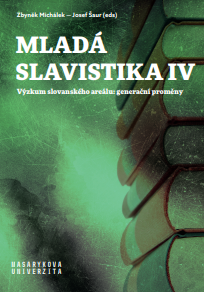
The literary process in any culture and country continues to evolve due to political, social and historical factors; another important factor in the modern era is the popularisation of trends. The changeable nature of literary genres, topics and character prototypes is, therefore, a given. This paper reconstructs the shaping of the fictional characters in Ukrainian literature at the turn of the 21st century—from the characters of Ukrainian modernism,“Homo Sovieticus” and the underground up to the present day. The shaping of Ukrainian fictional characters during this time was not easy. With the arrival of Ukrainian postmodernism, the characters became uncertain and were forced into endless searching with no real hopes for the future. The main protagonists of the current Ukrainian novels have changed: they look to the past to assess and understand the world they live in but are perhaps still searching and have to follow a path of self-discovery to be able to finally stop and fully understand their identity.
More...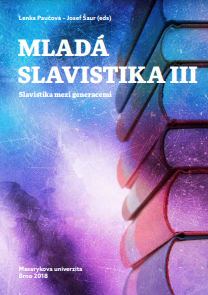
František Kautman, in his study of the Czech national identity, observes that we are not born with the awareness of which nation we belong to but that during our adolescence we create opinions which lead us to know what nation we are a part of. Undoubtedly, parents, school, surrounding environment, etc., contribute to the perception of the world as well as formation of the individual. In this case, we necessarily need culture, language and literature to educate a nation. Language is the most important component in the initial phase of forming a national identity without which we cannot understand culture and literature. This formula would be ideal. However, what happens if a territory is a part of more than one country in a single century? What if the only answer to a question of nationality is the hometown name? These considerations are partly solved by Maxim Dupeshko, a Ukrainian writer, in his novel called “A Story Worth an Entire Apple Orchard”, which serves as an example of dealing with the issue of searching for national identity in Ukrainian literature.
More...
The paper focuses on themes, such as illegal Ukrainian workers or different national stereotypes, in literary production of a contemporary Ukrainian writer Natalka Sniadanko. For this work were chosen two of her novels—the debut A Collection of Passions and Misadventures of a Young Ukrainian Lady (2001) and Frau Müller Will Not Pay More (2013). In her fiction Sniadanko tends to reflect life experience of Ukrainian women who have left their homeland in search of a better life and future. The author also shows different national mentality, issues of women’s emancipation and Eastern European guest workers, so called “gastarbeiters”. The aim of the paper is to prove, based on theme analysis, Sniadanko’s literary work is not just so-called “chick lit”, but it also stands a chance as a product of highbrow literature.
More...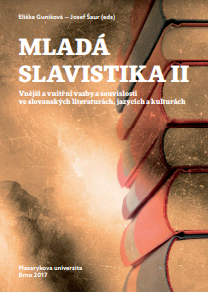
The writers very often address the basic question of the direction of life, which can be seen in the literature of all countries and times. However, the history and transformations of the society are significantly reflected in the way of looking at human existence. Therefore, this comparative study focuses on the comparison of two authors of contemporary Ukrainian and Czech prose in order to portray the perception of the modern world by young people. The selected novels are closely interconnected by a number of common features: the tendency of pop-literature, the search for one’s own identity in a time of indefiniteness and uncertainty (which is typical for contemporary literature), characters are lost in their ways which lead to nowhere, where a way (depicted as trains and tracks) and losing a home are distinctive images in the authors’ work. Through the exploration of the main characters, their state of mind and thoughts as well as the environment in which they live, we conclude that both the Ukrainian and the Czech writer use their characters to reflect the conscience, nervousness and unease of their generation in the uncertainty of today’s times.
More...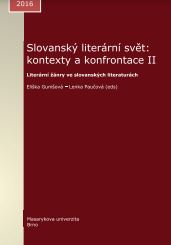
The bestiary as a genre originated in the Late Antiquity, when a Greek anonymous work called Fysiologus was written. Not only it described animals (both real and mythical), plants and stones, but it also ascribed them their symbolical meaning, which is interpreted using the Bible. Medieval bestiaries have been attractive thanks to their inspirational fantasies and powerful metaphors until today. They relate the appearance and character of various creatures to the life of a Christian, teaching him to live properly. The present study is dedicated to the collection of short prose Zviroslov (2009) by Tania Malyarchuk. It analyses this book from the point of view of the typology and history of a bestiary as a genre. In its second part, the study focuses on the poetics of the Zviroslov and on the possibilities of this genre to describe our society.
More...
The problem of post-Galician multicultural narration is analyzed in the article on the example of Ukrainian and Polish contemporary literature. The author shows the phenomenon of Galicia and it results on todayʼs cultural and literary space of Ukraine and Poland on the examples of the works of contemporary writers of both countries: Juri Andrukhovych, Juri Prokhasko, Natalia Sniadanko, Andrzej Stasiuk, Zemovit Scherek and others.
More...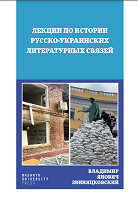
The book contains 16 chapters, which in the form of lectures are devoted to various aspects of the history of Russian-Ukrainian literary relations, especially in the 19th and 20th centuries. Some myths still alive in the consciousness of the wider and professional public are set to the right level, and issues of double cultural identity are tehere also discussed, namely on a philosophical, historical and literary level. The book is intended for readers fluent in the Russian language from among students of philological fields focused on the East Slavic area, professional literary scholars and the wider public.
More...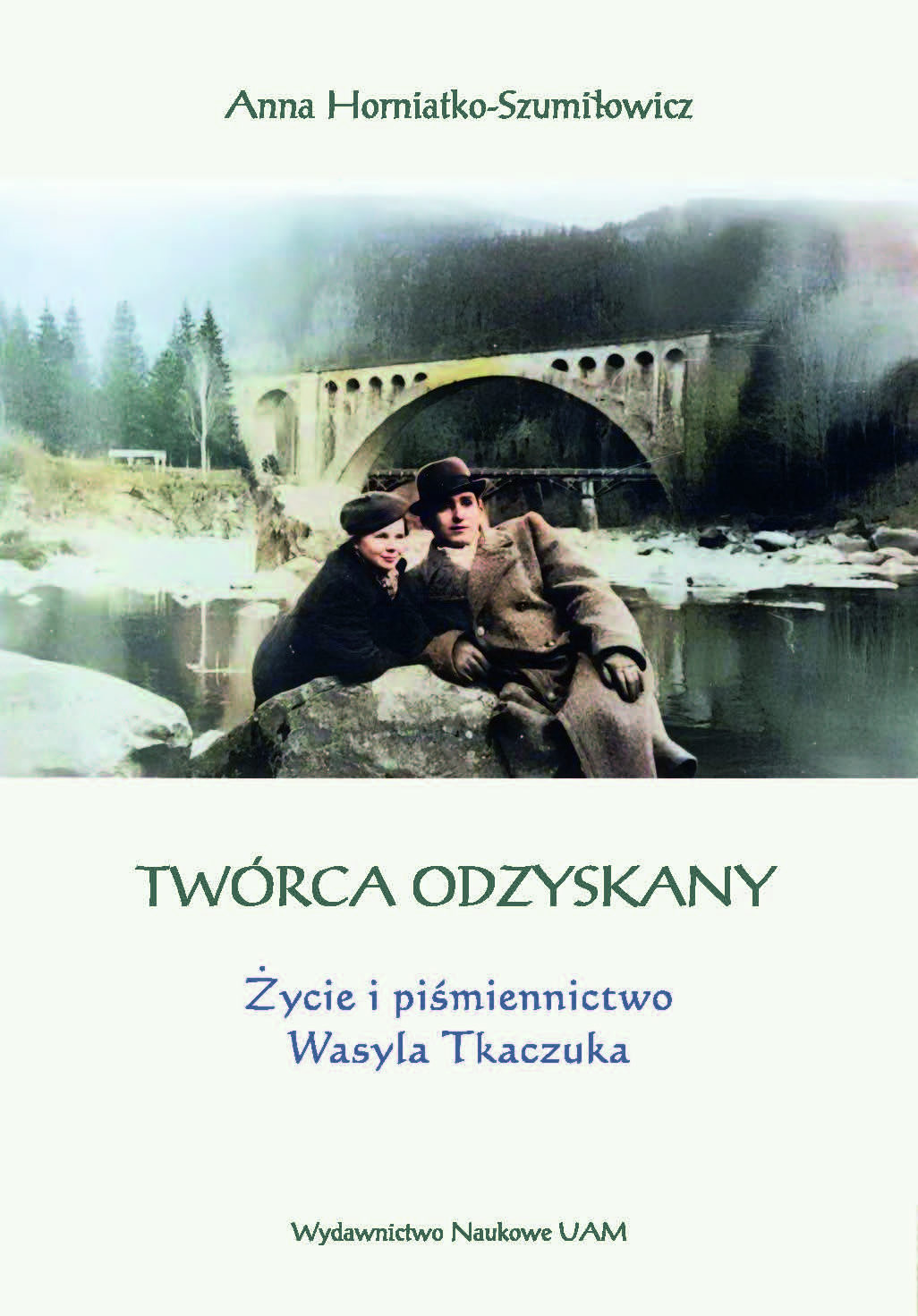
Anna Horniatko-Szumiłowicz's book Twórca odzyskany. Życie i piśmiennictwo Wasyla Tkaczuka [The creator recovered. The life and writings of Vasyl Tkachuk] examines the biography, literary activities within the Lviv-based "Twelve" grouping, and novels of this forgotten Ukrainian writer from the 1930s, proving that he and his legacy fully deserve to be restored to memory. The book includes unique interviews and valuable photographs, as well as more than a dozen novellas and sketches by the writer previously unpublished in book form.
More...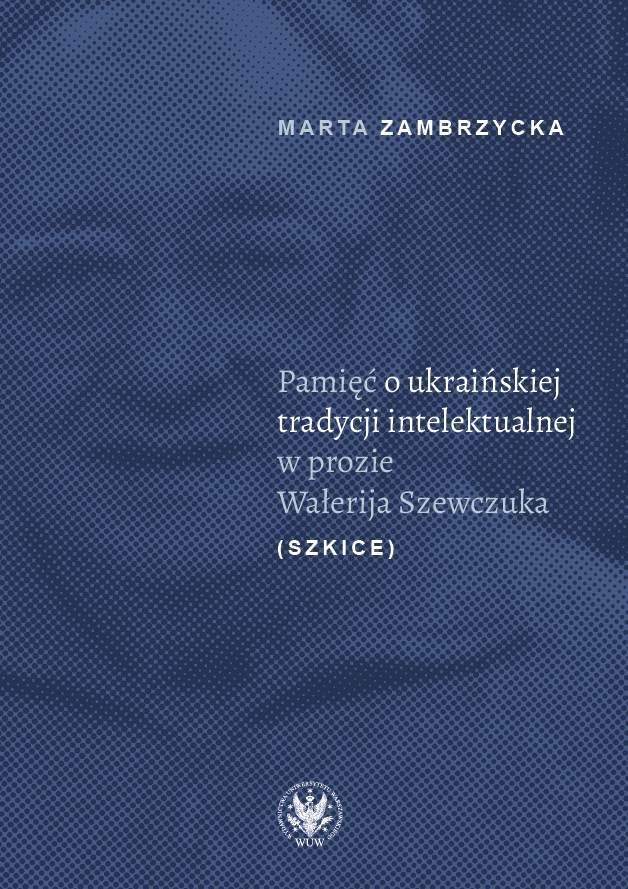
The book consists of six chapters, the first of which concerns theoretical reflections on Valeriy Shevchuk’s narrative strategies and memory as a literary category, and the subsequent ones are sketches focusing on four novels ('Три листки за вікном', 'Тіні зникомі', 'Око прірви', 'На полі смиренному') and one short story ('У череві апокаліптичного звіра'). All works are connected through intertextual references to literary and philosophical texts of the old Ukrainian literature.
More...